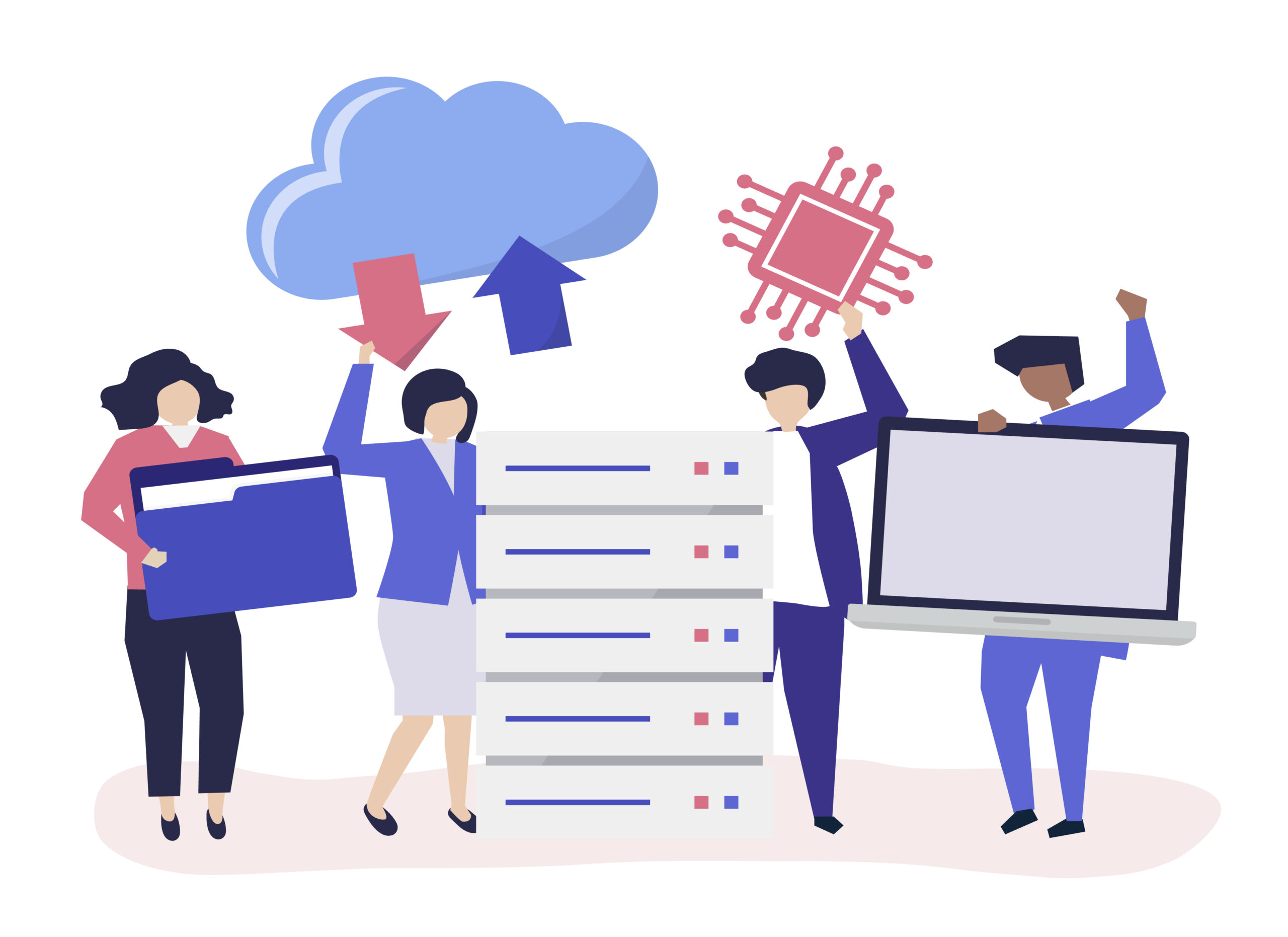In today’s rapidly evolving digital landscape, enterprises are constantly on the lookout for technologies that drive efficiency, boost customer satisfaction, and enable smarter decision-making. One such transformative technology is OpenAI’s ChatGPT. While many are familiar with ChatGPT as a powerful AI chatbot, what’s truly revolutionizing enterprise operations is ChatGPT integration services — the process of embedding ChatGPT into business systems, applications, and workflows.
Whether it’s automating support, streamlining internal operations, or enhancing customer experience, ChatGPT integration services offer a strategic edge. Here’s why they are a game-changer for enterprises.
1. Elevating Customer Support with AI-Powered Chat
Customer expectations have never been higher. They demand instant responses, 24/7 availability, and personalized support. Traditional support models, reliant on human agents alone, struggle to keep up.
By integrating ChatGPT into customer service platforms (like Zendesk, Salesforce, or even custom-built portals), enterprises can:
-
Provide 24/7 customer support without additional human resources.
-
Resolve common queries instantly, freeing up human agents for complex issues.
-
Handle multiple conversations simultaneously, scaling support efficiently.
-
Offer natural, conversational interactions that improve user satisfaction.
These capabilities drastically reduce resolution times, improve CSAT (customer satisfaction scores), and reduce support costs — a win-win for both businesses and customers.
2. Boosting Employee Productivity through Internal Automation
Enterprises often operate complex systems involving documentation, HR tools, IT service desks, CRMs, and more. Employees frequently waste time searching for information, filling out forms, or navigating cumbersome interfaces.
By integrating ChatGPT into internal systems like Slack, Microsoft Teams, or SharePoint, businesses can:
-
Enable AI-driven search assistants for instant access to policy documents, wikis, and SOPs.
-
Automate routine IT support, like password resets or access requests.
-
Streamline HR tasks like leave requests, onboarding questions, and payroll inquiries.
-
Enhance project management by integrating with tools like Jira, Trello, or Asana.
This reduces time spent on repetitive tasks and allows employees to focus on high-impact work, ultimately increasing enterprise productivity and morale.
3. Enhancing Decision-Making with AI Insights
ChatGPT integration isn’t limited to conversational tasks. When paired with enterprise data systems, it becomes a powerful tool for decision-making.
By connecting ChatGPT to business intelligence platforms, ERPs (like SAP or Oracle), or analytics dashboards, enterprises can:
-
Generate summaries of complex reports in plain English.
-
Create interactive data assistants for managers and executives.
-
Facilitate “ask me anything” interfaces for querying KPIs or historical trends.
-
Provide scenario analysis by simulating business decisions through prompt engineering.
With ChatGPT handling data synthesis and translation, leaders make faster, more informed decisions without needing deep technical expertise.
4. Seamless Multilingual and Multichannel Support
Enterprises operating across regions often face language and communication challenges. ChatGPT’s multilingual capabilities enable seamless communication in over 50 languages, reducing the need for localized teams.
When integrated into CRM systems, websites, or mobile apps, ChatGPT can:
-
Offer real-time translation of customer queries and responses.
-
Deliver localized customer support with cultural sensitivity.
-
Handle inquiries across multiple platforms (web, WhatsApp, SMS, etc.) through omnichannel integration.
This helps global businesses deliver consistent, high-quality experiences across all markets — without the need for dedicated language teams.
5. Improving Compliance and Risk Management
Compliance, documentation, and risk management are top priorities in industries like finance, healthcare, and law. ChatGPT integration can enhance these functions by:
-
Reviewing documents for policy or regulatory compliance using trained prompts.
-
Assisting legal or compliance teams in drafting contracts or summaries.
-
Automating risk assessment workflows through knowledge extraction and Q&A.
-
Monitoring communications for tone, sentiment, or policy violations.
With proper guardrails and audit trails in place, integrating ChatGPT in these areas ensures both efficiency and regulatory alignment.
6. Cost Efficiency at Scale
Hiring, training, and retaining human agents for every enterprise task can be expensive and time-consuming. ChatGPT offers scalable support without linear cost increases.
When integrated smartly:
-
The marginal cost per interaction approaches zero, especially at scale.
-
AI can work in low-margin, high-volume areas where human support is not cost-effective.
-
Upskilling or retraining staff for different departments becomes easier with AI support tools.
For growing enterprises, this means expanding services without proportionally increasing operational costs — a major competitive advantage.
7. Customizable for Industry-Specific Needs
One of the biggest benefits of ChatGPT integration services is customization. Enterprises can fine-tune models or prompt systems for industry-specific terminology, workflows, and regulatory needs.
Examples include:
-
Healthcare: AI assistants trained on HIPAA-compliant content for patient queries or clinical documentation.
-
Finance: ChatGPT integrated into banking apps for intelligent financial planning and fraud detection.
-
Retail: Personalized shopping assistants recommending products based on past behavior and preferences.
-
Manufacturing: Integrating with IoT systems to provide conversational interfaces for machine monitoring or maintenance alerts.
This tailored integration approach allows AI to truly support the unique goals of each business sector.
8. Rapid Integration with Existing Tools and APIs
ChatGPT integration services aren’t limited to big overhauls. With APIs and prebuilt connectors, businesses can integrate ChatGPT into existing tools with minimal disruption.
Common integrations include:
-
CRM: Salesforce, HubSpot, Zoho
-
Support Systems: Zendesk, Freshdesk
-
Collaboration Tools: Slack, Microsoft Teams, Notion
-
ERP & BI Tools: SAP, Power BI, Looker
-
Cloud Services: AWS Lambda, Azure Logic Apps, Google Cloud Functions
With expert integration services, deployment can happen in weeks — not months — accelerating time to value.
9. Future-Proofing the Enterprise
AI is no longer a “nice-to-have” — it’s a strategic imperative. By integrating ChatGPT now, enterprises position themselves to adapt to emerging AI trends and technologies.
Future integrations may involve:
-
Voice assistants powered by ChatGPT for hands-free operations.
-
Auto-generated workflows based on intent and natural language.
-
AI copilots across every department, from finance to engineering.
-
Predictive AI systems suggesting optimizations in real-time.
With ChatGPT as a core layer of enterprise architecture, organizations gain a future-proof foundation that evolves with technology trends.
10. Ensuring Responsible and Secure AI Use
Security and ethics are critical in enterprise settings. Modern ChatGPT integration services focus not just on functionality, but also:
-
Data privacy compliance (GDPR, HIPAA, SOC 2, etc.).
-
Role-based access to control sensitive conversations.
-
Audit logs and usage monitoring.
-
Ethical AI practices include bias detection and transparency.
Leading integration providers ensure that AI doesn’t become a liability — it becomes a trustworthy business partner.
Conclusion
ChatGPT integration services are not just a technological upgrade — they’re a strategic transformation. By embedding AI into enterprise ecosystems, businesses unlock new levels of agility, efficiency, and intelligence.
From customer support and internal ops to decision-making and compliance, the impact is profound and measurable. As more organizations embrace this shift, those who delay risk falling behind. Now is the time to explore what ChatGPT integration can do — not just for productivity, but for the future of your enterprise.

